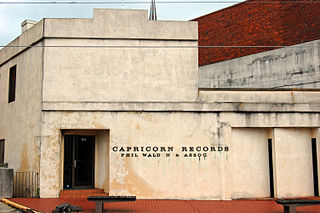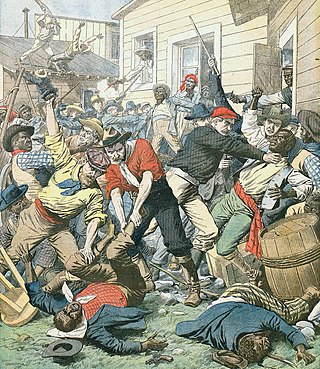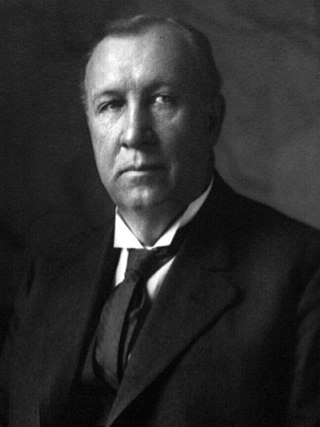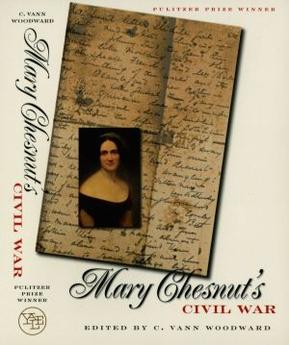Related Research Articles

Nathaniel Macon was an American politician who represented North Carolina in both houses of Congress. He was the fifth speaker of the House, serving from 1801 to 1807. He was a member of the United States House of Representatives from 1791 to 1815 and a member of the United States Senate from 1815 to 1828. He opposed ratification of the United States Constitution and the Federalist economic policies of Alexander Hamilton. From 1826 to 1827, he served as President pro tempore of the United States Senate. Thomas Jefferson dubbed him "Ultimas Romanorum"—"the last of the Romans", like Flavius Aetius.

Comer Vann Woodward was an American historian who focused primarily on the American South and race relations. He was long a supporter of the approach of Charles A. Beard, stressing the influence of unseen economic motivations in politics. Stylistically, he was a master of irony and counterpoint. Woodward was on the left end of the history profession in the 1930s. By the 1950s he was a leading liberal and supporter of civil rights. His book The Strange Career of Jim Crow, which demonstrated that racial segregation was an invention of the late 19th century rather than an inevitable post-Civil-War development, was endorsed by Martin Luther King Jr. as "the historical Bible of the civil rights movement". After attacks on him by the New Left in the late 1960s, he moved to the right politically. He won a Pulitzer Prize for History for his annotated edition of Mary Chestnut's Civil War diaries.

Thomas Edward Watson was an American politician, attorney, newspaper editor and writer from Georgia. In the 1890s Watson championed poor farmers as a leader of the Populist Party, articulating an agrarian political viewpoint while attacking business, bankers, railroads, Democratic President Grover Cleveland, and the Democratic Party. He was the nominee for vice president with Democrat William Jennings Bryan in 1896 on the Populist ticket.

The Compromise of 1877, also known as the Wormley Agreement or the Bargain of 1877, was an unwritten deal, informally arranged among members of the United States Congress, to settle the intensely disputed 1876 presidential election between Republican Rutherford B. Hayes and Democrat Samuel J. Tilden. The Democrats agreed to the election of Hayes and in turn he withdrew the Army from the South, leaving the Democrats in control there. The Compromise itself secured Hayes's authority as a political fact, and the subsequent withdrawal of the last federal troops from the Southern United States, effectively ending the Reconstruction Era and forfeiting the Republican claims to the state governments in South Carolina, Florida and Louisiana.

Capricorn Records was an independent record label founded by Phil Walden and Frank Fenter in 1969 in Macon, Georgia. Capricorn Records is often credited by music historians as creating the southern rock genre.

Benjamin Elijah Mays was an American Baptist minister and American rights leader who is credited with laying the intellectual foundations of the American civil rights movement. Mays taught and mentored many influential activists, including Martin Luther King Jr, Julian Bond, Maynard Jackson, and Donn Clendenon, among others. His rhetoric and intellectual pursuits focused on Black self-determination. Mays' commitment to social justice through nonviolence and civil resistance were cultivated from his youth through the lessons imbibed from his parents and eldest sister. The peak of his public influence coincided with his nearly three-decade tenure as the sixth president of Morehouse College, a historically black institution of higher learning, in Atlanta, Georgia.

The Redeemers were a political coalition in the Southern United States during the Reconstruction Era that followed the Civil War. Redeemers were the Southern wing of the Democratic Party. They sought to regain their political power and enforce white supremacy. Their policy of Redemption was intended to oust the Radical Republicans, a coalition of freedmen, "carpetbaggers", and "scalawags". They generally were led by the White yeomanry and they dominated Southern politics in most areas from the 1870s to 1910.

Michael Hoke Smith was an American attorney, politician, and newspaper owner who served as United States secretary of the interior (1893–1896), 58th governor of Georgia, and a United States senator (1911–1920) from Georgia. He was a leader of the progressive movement in the South. He was a leader in the successful campaign to disenfranchise African American voters in 1907.

Ralph Emerson McGill was an American journalist and editorialist. An anti-segregationist editor he published the Atlanta Constitution newspaper. He was a member of the Peabody Awards Board of Jurors, serving from 1945 to 1968. He won a Pulitzer Prize for editorial writing in 1959.

Mary Boykin Chesnut was an American author noted for a book published as her Civil War diary, a "vivid picture of a society in the throes of its life-and-death struggle." She described the war from within her upper-class circles of Southern slaveowner society, but encompassed all classes in her book. She was married to a lawyer who served as a United States senator and Confederate officer. Chesnut worked toward a final form of her book in 1881–1884, based on her extensive diary written during the war years. It was published in 1905, 19 years after her death. New versions were published after her papers were discovered, in 1949 by the novelist Ben Ames Williams, and in 1981 by the historian C. Vann Woodward, whose annotated edition of the diary, Mary Chesnut's Civil War (1981), won the Pulitzer Prize for History in 1982. Literary critics have praised Chesnut's diary—the influential writer Edmund Wilson termed it "a work of art" and a "masterpiece" of the genre—as the most important work by a Confederate author.

William Jennings Bryan Dorn was a United States politician from South Carolina who represented the western part of the state in the United States House of Representatives from 1947 to 1949 and from 1951 to 1975 as a Democrat.
Ulrich Bonnell Phillips was an American historian who largely defined the field of the social and economic studies of the history of the Antebellum South and slavery in the U.S. Phillips concentrated on the large plantations that dominated the Southern economy, and he did not investigate the numerous small farmers who held few slaves. He concluded that plantation slavery produced great wealth, but was a dead end, economically, that left the South bypassed by the industrial revolution underway in the North.

Bourbon Democrat was a term used in the United States in the later 19th century (1872–1904) to refer to members of the Democratic Party who were ideologically aligned with fiscal conservatism or classical liberalism, especially those who supported presidential candidates Charles O'Conor in 1872, Samuel J. Tilden in 1876, President Grover Cleveland in 1884, 1888, and 1892 and Alton B. Parker in 1904.
Steven Howard Hahn is Professor of History at New York University.

Butler Carson Derrick Jr. was an American politician and a U.S. Representative from South Carolina.
Events from the year 1802 in the United States.
Louis Rudolph Harlan was an American academic historian who wrote a two-volume biography of the African-American educator and social leader Booker T. Washington and edited several volumes of Washington materials. He won the Bancroft Prize in 1973 and 1984, once for each volume, and the 1984 Pulitzer Prize for Biography or Autobiography for the second volume.

Mary Chesnut's Civil War is an annotated collection of the diaries of Mary Boykin Chesnut, an upper-class planter who lived in South Carolina during the American Civil War. The diaries were extensively annotated by historian C. Vann Woodward and published by Yale University Press in 1981. For his work on the book, Woodward was awarded the 1982 Pulitzer Prize for History.

Louis Decimus Rubin Jr. was a noted American literary scholar and critic, writing teacher, publisher, and writer. He is credited with helping to establish Southern literature as a recognized area of study within the field of American literature, as well as serving as a teacher and mentor for writers at Hollins College and the University of North Carolina at Chapel Hill; and for founding Algonquin Books of Chapel Hill, a publishing company nationally recognized for fiction by Southern writers. He died in Pittsboro, North Carolina and is buried at the Kahal Kadosh Beth Elohim Cemetery in Charleston, South Carolina.
Populism in the United States reaches back to the Presidency of Andrew Jackson in the 1830s and to the People's Party in the 1890s. It has made a resurgence in modern-day politics in not only the United States but also democracies around the world. Populism is an approach to politics which views "the people" as being opposed to "the elite" and is often used as a synonym of anti-establishment; as an ideology, it transcends the typical divisions of left and right and has become more prevalent in the US with the rise of disenfranchisement and apathy toward the establishment. The definition of populism is a complex one as due to its mercurial nature; it has been defined by many different scholars with different focuses, including political, economic, social, and discursive features. Populism is often split into two variants in the US, one with a focus on culture and the other that focuses on economics.
References
- ↑ "Mercer University Press: Contributor". www.mupress.org.
- 1 2 "Roper, John Herbert, 1948- - Social Networks and Archival Context". snaccooperative.org.
- ↑ "John Herbert Roper Archives". Southern Cultures.
- ↑ Reidy, Joseph P. (March 1985). "U. B. Phillips: A Southern Mind. By John Herbert Roper. (Macon: Mercer University Press, 1984. vi + 198 pp. Illustrations, notes, bibliography, and index. $16.95.)". Journal of American History. 71 (4): 889–890. doi:10.2307/1888559. JSTOR 1888559.
- ↑ Reviews of C. Vann Woodward, Southerner include:
- Bowman, Shearer Davis (May 1990). "Roper, John Herbert, "C. Vann Woodward, Southerner" (Book Review)". The Historian. 52 (3): 511.
- Doherty, Herbert J. (1989). "Review of C. Vann Woodward, Southerner". The Florida Historical Quarterly: 241–244. JSTOR 30148080.
- ↑ Reviews of C. Vann Woodward; A Southern Historian and His Critics include:
- King, Richard H. (March 1999). "C. Vann Woodward: A Southern Historian and His Critics". Journal of American History. 85 (4): 1552–1553. doi:10.2307/2568276. JSTOR 2568276. ProQuest 224891534.
- Silverman, Jason H. (1998). "C. Vann Woodward: A Southern Historian and His Critics". The Mississippi Quarterly. 51 (2): 415–417. ProQuest 213545801.
- ↑ Rubeck, Frederick J. (February 2005). "Paul Green: Playwright of the Real South. By John Herbert Roper. (Athens and London: University of Georgia Press, c. 2003. Pp. xvi, 320. $34.95, ISBN 0-8203-2488-4.)". Journal of Southern History. 71 (1).
- ↑ Reviews of The Magnificent Mays include:
- Lau, Peter F. (September 2013). "The Magnificent Mays: A Biography of Benjamin Elijah Mays. By John Herbert Roper Sr. (Columbia: University of South Carolina Press, 2012. xvi, 367 pp. $44.95.)". Journal of American History. 100 (2): 586–587. doi:10.1093/jahist/jat263.
- Dickerson, Dennis C. (November 2013). "The Magnificent Mays: A Biography of Benjamin Elijah Mays". Journal of Southern History. 79 (4): 999–1001. ProQuest 1459681465.
- ↑ Reviews of The Last Orator for the Millhands include:
- Loiselle, Aimee (May 2020). "The Last Orator for the Millhands: William Jennings Bryan Dorn, 1916-2005. By John Herbert Roper Sr. (Macon, Ga.: Mercer University Press, 2019. Pp. xii, 443. $40.00, ISBN 978-0-88146-690-4.)". Journal of Southern History. 86 (2): 537–538. doi:10.1353/soh.2020.0162. S2CID 219491348. Alternate URL.
- Coclanis, Peter A. (September 2021). "The Last Orator for the Millhands: William Jennings Bryan Dorn, 1916–2005. By Jack Roper. (Macon: Mercer University Press, 2019. xii, 443 pp. $40.00.)". Journal of American History. 108: 429. doi:10.1093/jahist/jaab221.